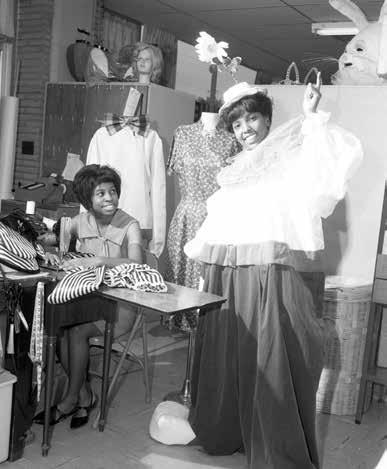3 minute read
Bunkering With Books
Next Article

LUCY AND OLIVE AND EVER
BY CONNIE CRONLEY
My friend Susan is a discerning reader. She reads a lot and gives assessments I admire.
“What did you think of ‘Oh William?’” I asked her. She put one hand on her heart, closed her eyes and said, “Ahhh.” What an eloquent review. It mirrored my opinion exactly. Author Elizabeth Strout sets her stories in New England and brings her characters alive on the page in deceptively simple prose while plumbing the mysteries of the human heart. Language as clear as a brook, ordinary people in all their complexity – what a trick to pull out of the hat, but she does it again and again.
“OH WILLIAM”
“Oh William,” short-listed for the prestigious Booker Prize, revisits Lucy Barton, a character in two previous Strout novels. It begins this way, “I would like to say a few things about my first husband, William.” She goes on to admit that William has always been a mystery to her. After a marriage of 20 years, Lucy left him, remarried and is recently widowed. “Grief is such a – oh, it is such a solitary thing,” Lucy writes. “This is the terror of it, I think. It is like sliding down the outside of a really long glass building while nobody sees you. I thought I would die from the pain of our separating, but I did not die, and I am here, and so is William.” They have remained friends and when William turns up to ask her to go with him on a trip to Maine to investigate a family secret, feeling both lonely and vulnerable, she agrees to accompany him on the trip. This story seemed down-to-the-ground truthful to me. I’ve felt grief like that. I’ve been best friends with an ex-husband. I have been puzzled by the people around me, relationships, the past and even the present. Memories, mistakes, hope, vulnerability – the title’s word “Oh!” is perfect to sum up life. Whereas Lucy Barton is reflective, Strout’s other famous character, Olive Kitteridge, is the opposite. Olive moves through life like a blunt object from the game of Clue. She is tall, direct and outspoken, a retired math teacher in Crosby, Maine.
“OLIVE KITTERIDGE”
“Olive Kitteridge,” published in 2008, was the first Strout book I read and it left me – I’ve never used this word but it is appropriate here – gobsmacked. I was astonished at Strout’s mastery in weaving together 13 short stories of characters that circle Olive like planets. Olive is central in some stories, a participant in others, and just passing through in the rest, but her presence and her personality dominate. Strout’s perception of the human condition is tenderly penetrating. No wonder this book won the Pulitzer Prize.
“CALLING FOR A BLANKET DANCE”
I felt the same overwhelming admiration for a debut book I discovered at a Tulsa book signing hosted by Magic City Bookstore. Oscar Hokeah is a young author who lives in Tahlequah. “Calling for a Blanket Dance,” his collection of linked short stories, forms a novel about Ever Geimausaddle, part Kiowa, part Cherokee, part Mexican, whose life shifts between Anadarko to Tahlequah. Hokeah is also Cherokee, Kiowa, and Mexican. He works for Indian Child Welfare, so maybe that is how he can write with such deep knowledge and understanding, telling us stories of Native people in great pain and lives of generational trauma, all lifting their faces toward redemption. I have Kiowa and Cherokee relatives; I have lived in Oklahoma my entire life; yet this book taught me so much about the Native cultures and people living right beside me. I didn’t know what a Kiowa blanket dance was until I read this book.
I’m not going to tell you. The novel is truly, as one reviewer described it, “stunning.” I know, I know, I can hear the silent cynicism: “He can’t be that good if he lives in Oklahoma.” Believe me, the book is that good. A “New York Times” book review – no small honor, that! – also likens it to “Olive Kitteridge.” With consummate skill, Hokeah tells the story of a troubled young man finding his way home.










